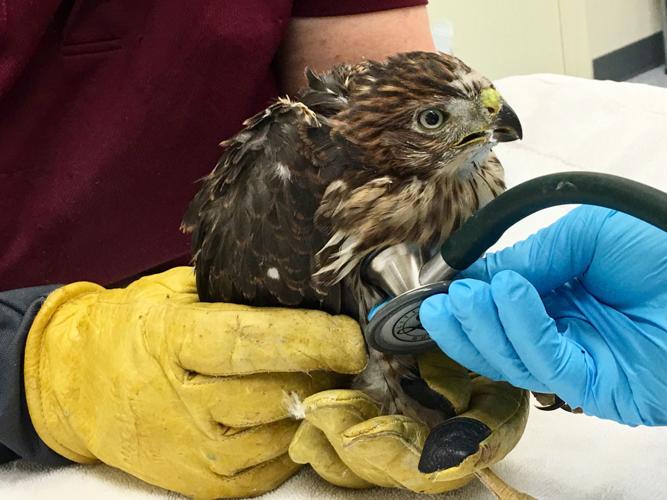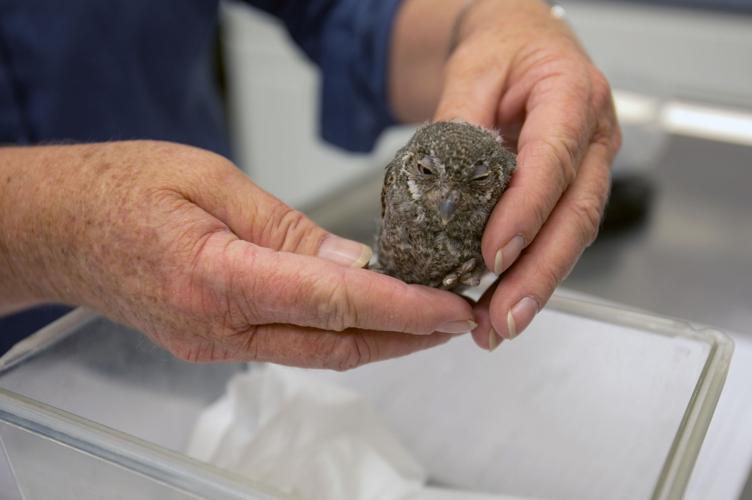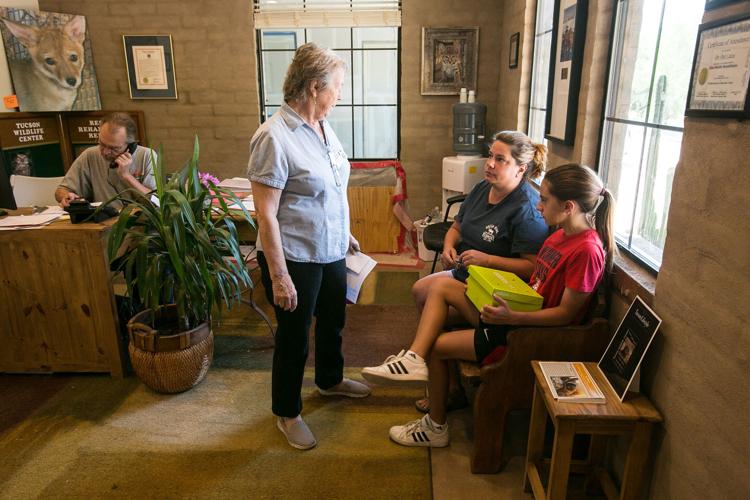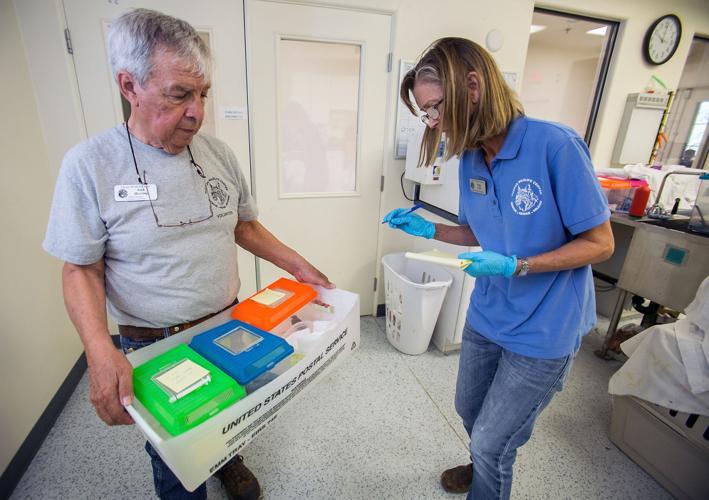With Tucson in the middle of a weeklong stretch of triple-digit temperatures, a local wildlife rescue center has been inundated with phone calls regarding wildlife affected by the heat.
Also, this time of year is when young Cooper’s hawks drop from their nests as they learn to fly. This is a common event and the birds should be left alone if they appear unharmed, wildlife officials said.
On Monday and Tuesday, Tucson Wildlife Center received more than 200 phone calls from residents who have spotted wildlife near their homes and work, according to a news release from the center.
The only rehabilitation center in Southern Arizona that’s equipped to handle the large volume of calls, the wildlife center is asking people to leave the animals where they are, unless they’re obviously injured.
The wildlife center typically takes in a dozen animals a day, but staff, veterinarians and volunteers have been attending to three times as many animals in the last few days, the release said.
Many of the animals have been affected by the sweltering heat, which is expected to continue through the weekend.
The center has received five calls this week regarding animals who have sought relief in swimming pools. Several of the animals drowned, the release said. The others are being cared for.
There are also reports regarding baby Cooper’s hawks leaping from their nests, which is normal for this time of year.
June is the month that young Cooper’s hawks naturally begin leaving their nests as they develop their ability to fly. They usually spend about a week on the ground before taking off own their own, said Tucson Wildlife Center’s founder and executive director, Lisa Bates.
During this time, parent hawks are typically perched nearby, keeping watch on their young and prepared to attack potential threats, Bates said. People have reported being swooped by Cooper’s hawks likely meaning there are young hawks on the ground nearby.
The center’s animal care supervisor, Lou Rae Whitehead, recommends that for mammals and birds of prey including eagles, hawks, falcons and owls, people put out shallow containers of water. A shady and protected area, free from dogs and cats, is also helpful, he said.
Young birds should only be removed from the wild if they’re injured or orphaned, said Mark Hart, an Arizona Game and Fish Department spokesman.
If a Cooper’s hawk appears more downy than feathered and doesn’t attempt to escape when approached, there’s a chance it’s fallen out of its nest, usually due to strong winds, Hart said.
Leaving the bird where it is or providing an alternate nest, such as a small basket or milk carton attached to a tree, is preferable to taking it to a rehab or wildlife sanctuary, Hart said.
Anyone who believes that an animal is injured in distress should contact the Tucson Wildlife Center at 290-9453.







